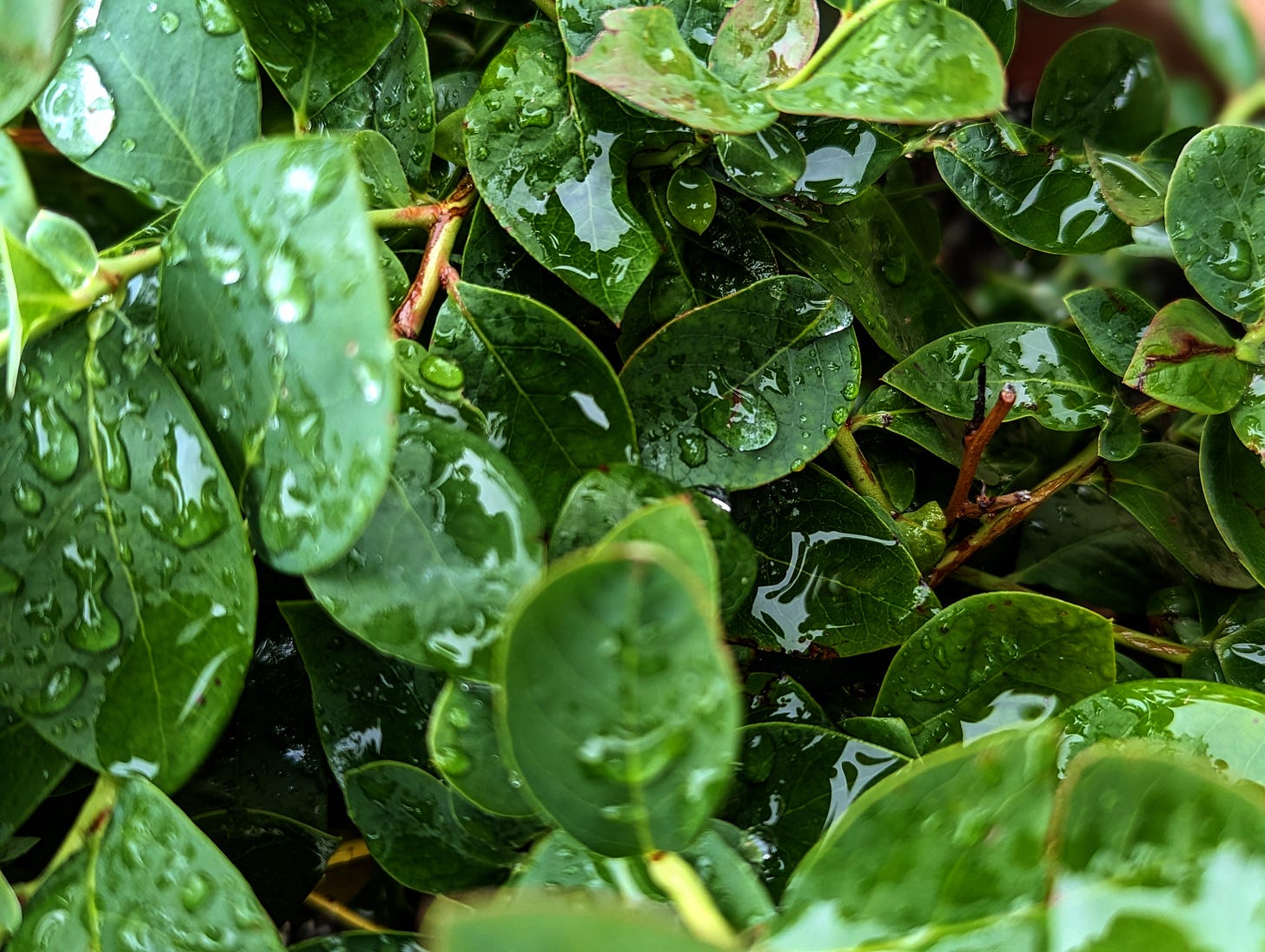You Can't Get It All Done
The efficiency trap, books I've been reading, and an updated website
As a new week starts, most of us feel the pressure from the outset: mouths to be fed, work to get done, people to meet with, household chores to keep up, and more. We’re at a deficit, falling behind, from the moment we set foot on the floor as we get out of bed. Already behind, already feeling the pressure.
Let me propose a different way forward. Rather, let me share a Richard Rohr quote as Monday morning inspiration:
"Maybe we all should begin our days [with a broad sense] of satisfaction, abundance, and enoughness." - Richard Rohr
It’s not that I’m recommending you ignore the responsibilities and the expectations you have, necessarily. But we can start our days with a mindset of simply acknowledging, perhaps even experiencing gratitude for our very existence.
What makes Monday hard for many people is the sense of pressure, that there is a lot we need to do and we are trying to keep up—trying to spin the plates without letting anything drop. The perfectionists amongst us are trying to avoid even wobbling plates, let alone dropping ones.
So it’s easy to, all of a sudden, find ourselves feeling like it’s not fair, or at the very least it’s very frustrating, that we don’t have more time. More time to get things done, to check things off, to get things under control. And to keep them there.
But that’s where the “efficiency trap” comes in. Take email, for example. The more effective and efficient you become at responding to emails, the more emails you are going to receive. Becoming “better” at email means you’re likely to end up with even more than you started with.
I’ve written briefly before about the modern reality of optimization and the seductive trap it creates. I recently read the book, Four Thousand Weeks: Time Management for Mortals. The author, Oliver Burkeman, was recently on a favorite podcast of mine, “Farewell” from the folks at The Growth Equation. This quote paints a picture of the reality under the efficiency trap:
“You cannot optimize your way to peace of mind in a world where the supply of incoming things is effectively infinite. Getting more efficient at getting through an infinite supply of something just you have more of it to do.”
— Oliver Burkeman, on the Farewell podcast
As Monday begins, what do you want to do less of? What do you want to prioritize? And where can you settle into a sense of enoughness?
In the book, Burkeman offers up a sobering and freeing reminder:
…maybe it’s not that you’ve been cheated out of an unlimited supply of time; maybe it’s almost incomprehensibly miraculous to have been granted any time at all.
I’ll leave you with two reflection questions offered up toward the end of the book. (It’s a great book and I highly recommend it.)
Are you holding yourself to, and judging yourself by, standards of productivity or performance that are impossible to meet?
How would you spend your days differently if you didn’t care as much about seeing your actions reach fruition?
To Check Out
Currently Reading:
The Book of Delights by Ross Gay
Since it’s been a while, here are a few books I’ve read this year:
Walking in Wonder: Eternal Wisdom for a Modern World by John O’Donohue
A beautiful collection of conversations and reflections on themes such as “imagination, landscape, the medieval mystic Meister Eckhart, aging, and death.”
A Psalm for the Wild-Built by Becky Chambers
I don’t read a lot of fiction. This was incredible! In the new genre of “solarpunk,” centuries have passed since the robots of Panga became self-aware and disappeared into the wilderness. “One day, the life of a tea monk is upended by the arrival of a robot, there to honor the old promise of checking in. “
No Time Like the Future: An Optimist Considers Mortality by Michael J. Fox
I listened to the audiobook (recorded by the author), which brings his characteristic charm, humor, and well-earned groundedness to this memoir.
New Website, New Offerings
For the last few years, I’ve carried this mantra with me:
Optimism is choosing to find possibilities in an unknown future.
It turns out, optimism is both a mindset and a skill anyone can develop. And it’s something I’ve been helping people get better at.
I’ve been working the last month to update my website to reflect what I’m doing to bring more optimism and possibility-seeking into the world.
Here is how you can be a part of this new work:
Please take a few minutes to learn more about Optimistic Coaching on my website: www.optimism.coach.
Who do you know that would be interested in learning about Optimistic Coaching? Send them this email or let me know who they are.
Maybe YOU are interested in learning more. Let's chat!
This dispatch was written to my Monday morning folk music playlist, including the Brandi Carlile’s 2012 song, Heart’s Content.





